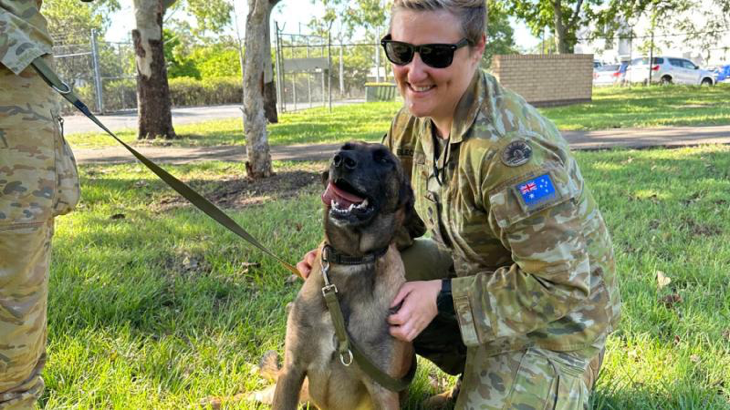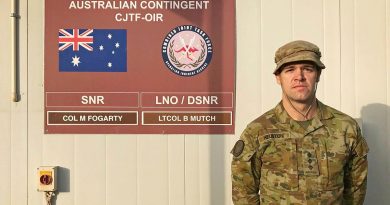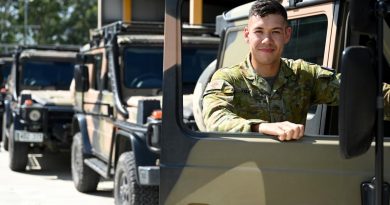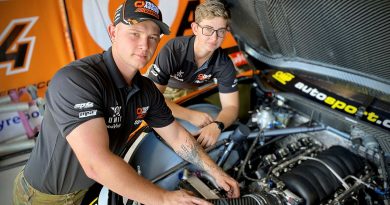Taking care of the soldiers’ best friend

As the only full-time veterinary officer in the ADF, Captain Alexandra Blecich augments garrison health provided by civilian veterinarians and delivers support in the operational environment.
CAPTION: Veterinary officer in the ADF, Captain Alexandra Blecich, greets explosive detection dog Petra. Story by Flight Lieutenant Marina Power.
Captain Blecich focuses on military working dogs, making sure they are treated with the level of care and respect they are entitled to. This includes teaching canine first aid to dog handlers and medics across Defence.
“Military working dogs are serving members and we have a moral obligation to provide them with appropriate medical care,” Captain Blecich said.
“Veterinarians are not always positioned to provide immediate medical management to the canine casualty in the operational environment.
“Our focus is to support the strategic evacuation phase of managing canine casualties and ensuring that dog handlers and medics have appropriate pre-veterinary care to manage the military working dog at point of injury.
“The handlers appreciate knowing that they can do the basics for their dog if they are ever injured. Empowering them to provide first-response care is incredibly satisfying.”
For training purposes, Captain Blecich uses a robotic dog called Diesel, which is programmed with combat injuries, enabling soldiers to practise treating them.
“Diesel has allowed us to shift our training paradigm to address contextual challenges of dealing with canine trauma in the operational environment using outcome-focused scenario training,” Captain Blecich said.
While most of the veterinary garrison health is outsourced, Captain Blecich’s knowledge of the demands of the ADF working environment means she can provide the best advice and guidance on treating the dogs.
“A civilian veterinarian may put a working dog on medication without considering what changes may need to be made to that dog’s employment until they recover, because the effect of that medication may affect that dog’s ability to work,” she said.
Captain Blecich had a wealth of experience in canine sports medicine and rehabilitation, injury prevention and conditioning before joining Defence.
Her first exposure to the ADF was more than three years ago when she provided medical care for injured ADF working dog Daisy.
“Treating Daisy, who had a spinal injury, is very close to my heart. To see her up and running around was very special,” Captain Blecich said.
After that experience, Captain Blecich joined the ADF as a reservist and went on to continuous full-time service, first with the School of Military Engineering in 2023 and then with 2nd Health Brigade this year.
She has provided support for military working dogs in Army and Air Force.
“The veterinarian is the glue that pieces together the full spectrum of military working dogs’ health across the organisation, and that is very important,” she said.
.
.

.
.





